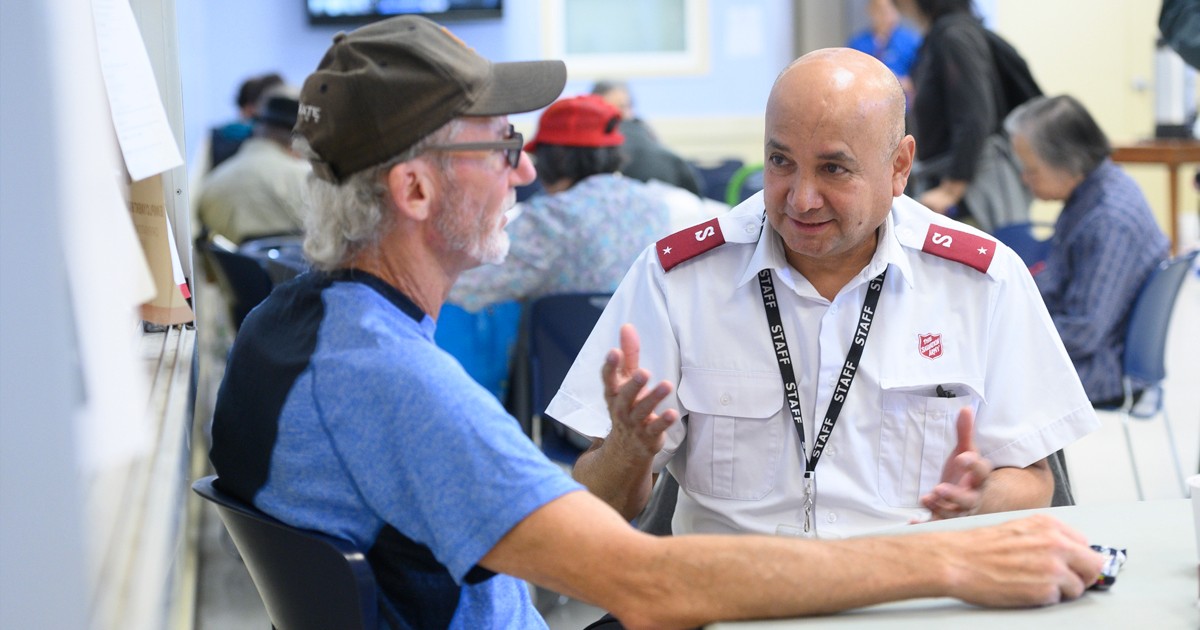 How does your corps operate? What model of leadership does your congregation use? How are you represented? If you want to be part of a healthy congregation, these are questions worth exploring. The strength of congregational leadership and the chosen governance model depends upon a number of factors:
How does your corps operate? What model of leadership does your congregation use? How are you represented? If you want to be part of a healthy congregation, these are questions worth exploring. The strength of congregational leadership and the chosen governance model depends upon a number of factors:
• the leadership style of the corps officer
• the culture of the congregation
• the competency and skill set of local leadership
• the expectations of congregants concerning ownership, input and involvement
Flexibility and Dialogue
The success of the governance model rests on the ability of the leader to inspire vision around a concept, idea or dream. Shared vision is essential. The old “command and control” model results in outcomes that are not anchored in passion or nurtured in a healthy environment. Effective leaders need proper accountability, a well-articulated purpose and the ability to connect vision with outcomes. Inclusiveness, listening, empowerment and ownership are all important.
In good corps governance, leadership is always a dialogue, never a monologue. Leadership isn't about imposing the leader's dream. It's about developing a shared sense of destiny. Members of the board or council must understand, accept and commit to the vision. They must be able to listen deeply to others, discover a common purpose and communicate the vision so that people at every level can see themselves in it. Otherwise, the end result is often frustration and detachment from the life of the congregation.
Governance Models
Historically, the corps council has incorporated congregational members of all ages and backgrounds, program/business locals and perhaps thrift store or community and family services personnel. This model still serves well in many centres.
A second model reflects the specific program or business functions of the ministry unit, and is usually centred around a smaller executive group with three different “streams”: pastoral care/shepherding, program/worship and business/finance. This model creates a broad base of conversation and ownership at the grassroots level with a quicker decision turnaround time. The executive leadership team casts the vision and works to evaluate outcomes.
A third model incorporates many of the same characteristics as the aforementioned structures but also allows the congregation to elect two members to the governance team annually. While key personnel still hold membership on the board, based upon their positions in the worshipping community, two elected members also represent the church voice as a whole.
Every model has strengths and weaknesses, but the ultimate success of any governance model rests upon teamwork. If corps officers acknowledge their own strengths and weaknesses without feeling threatened by local leadership, and if they understand how to inspire vision and lead through healthy processes, governance will succeed and ministry will flourish. If corps officers feel threatened, they will tend to overcompensate by exerting their authority, which often results in a frustrated board, council and congregation. Little is achieved under these circumstances and mission effectiveness is diminished tremendously.
Building a Legacy
Successful boards and councils are concerned about legacy. Board members need to be set free to dream and connect vision with action. When a board or council feels involved in shaping a legacy, they are much more passionate and engaged. Of course, they must also aim to accurately capture the hopes, dreams and aspirations of the entire congregation.
To do this, they must recognize the difference between people's intrinsic and extrinsic values. By appealing to extrinsic or external values, a leader attempts to connect the imagination, response and commitment of the congregation to their own personal expectations or agenda. This strategy is usually unsuccessful. However, appealing to intrinsic values enhances a sense of inner satisfaction, meaning, purpose and fulfilment. It motivates a deeper commitment and inspires people to forget cost to self and focus on the greater vision of the whole.
Good governance enlists others in a common vision by appealing to shared aspirations. Board and council members must know their constituents, find the common ground, draft a collective vision statement, expand communication skills, breathe life into the vision, speak from the heart, listen often and “walk the shop floor” by being with the people. The board or council is the conduit to achieve the God-inspired dream of the congregation. Its ultimate purpose is to conduct the business of the people, by the people and for the people—all to the glory of God.
Lt-Colonel Lee Graves is the divisional commander of the Ontario Great Lakes Division









Thank You Joe